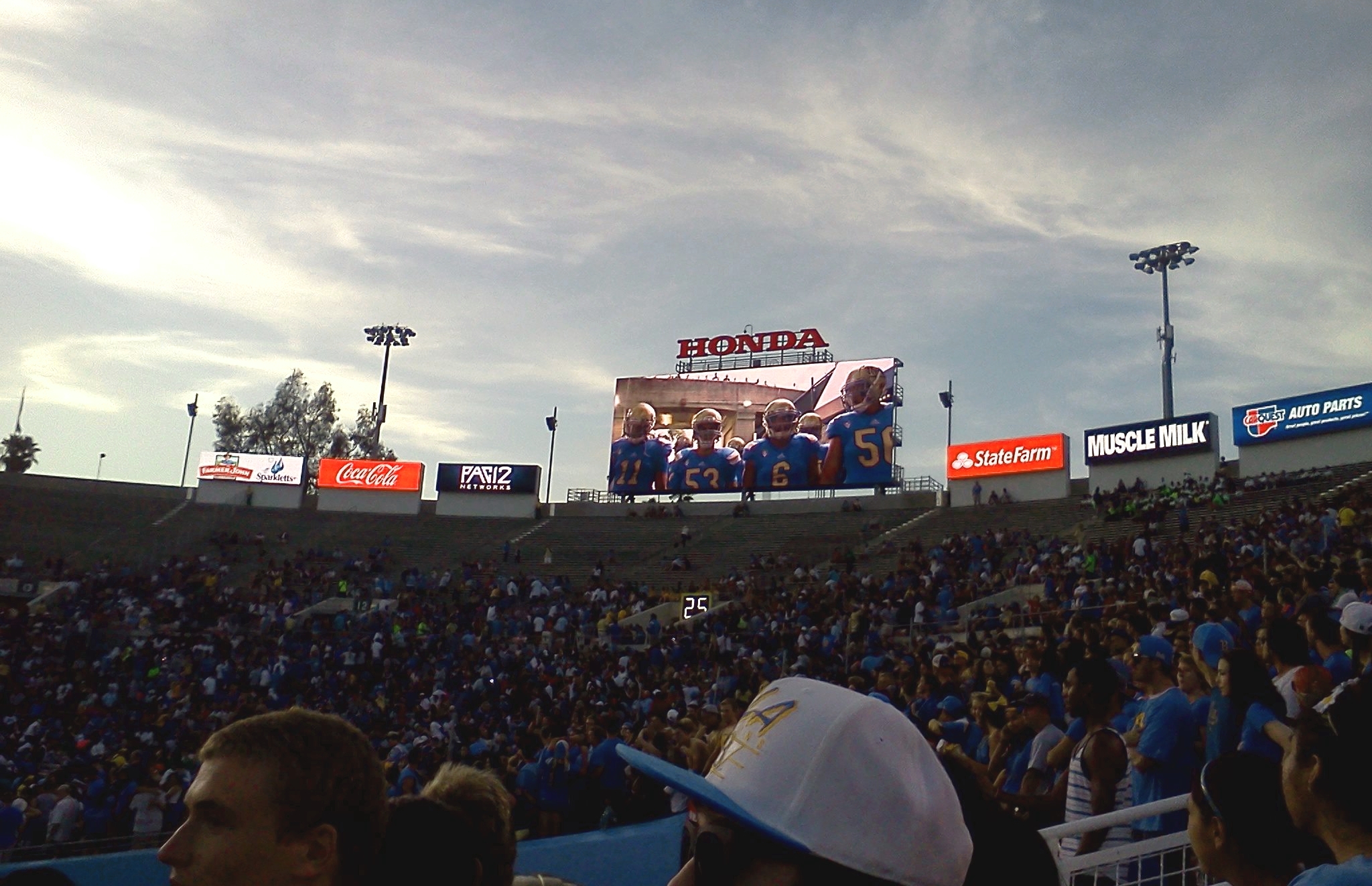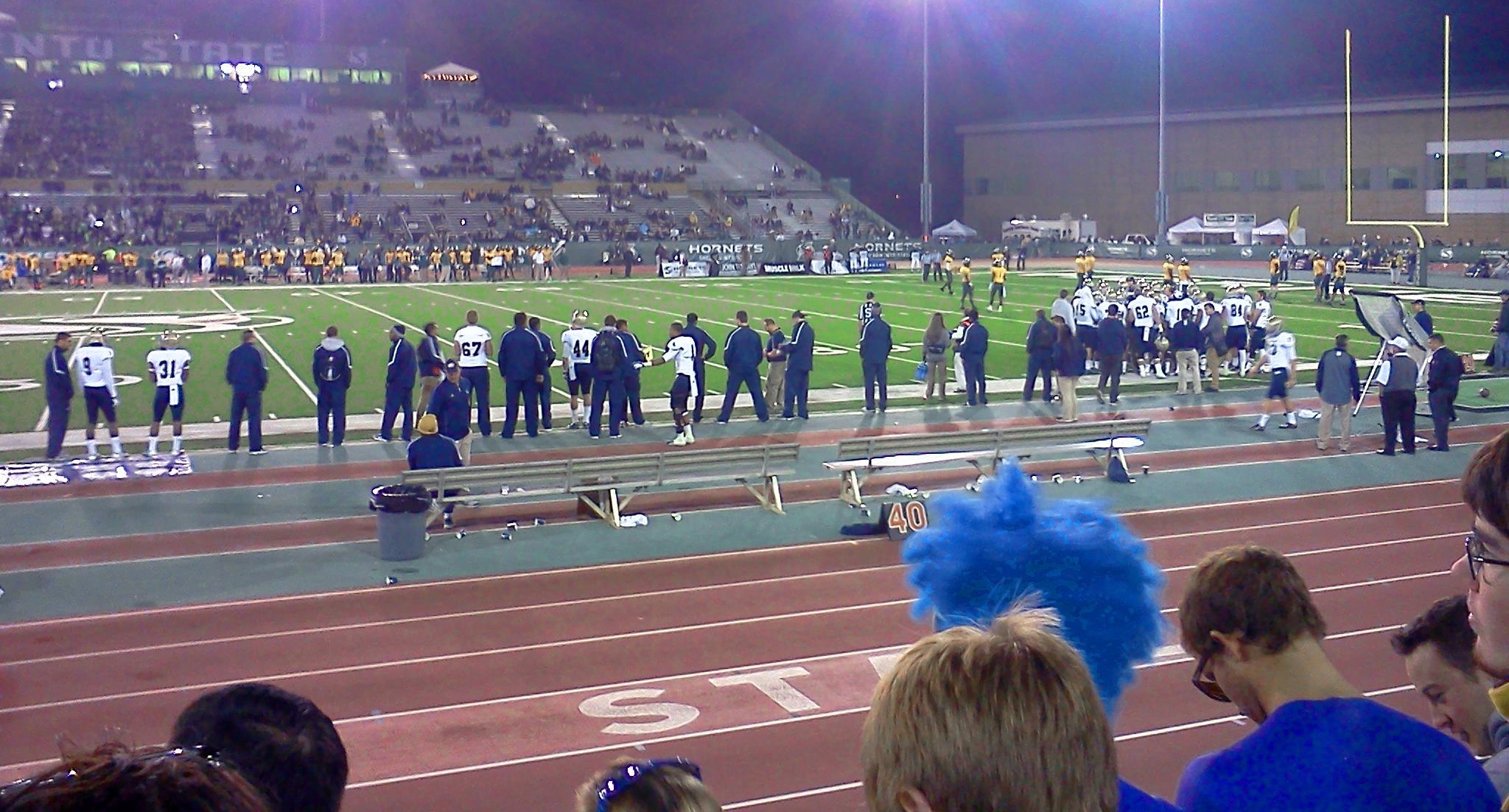The conclusion of UCLA’s football season with a Sun Bowl victory marked the end of a turbulent season for the three existing University of California football teams. These three teams — the up-and-coming UCLA Bruins, the struggling California Bears, and the harder-to-quantify UC Davis Aggies — are the only surviving programs in a university system infamous for budgetary issues. As such, they must often face scrutiny and existential questions from their campus and community that other programs may avoid. Let’s take a look at how they rose to the challenge in 2013.
Summary
The aforementioned UCLA started with high hopes and largely fulfilled them. While failing to win the PAC-12 championship, the Bruins beat rival USC, posted a winning record, and defeated Virginia Tech handily in a bowl game. The future looks bright for UCLA as a major force on the west coast.
Fellow PAC-12 team UC Berkeley, meanwhile, struggled to deal with a coaching change and finished the season with an unfortunate 1-11 record, with no conference wins. The team also faced criticism for academic standards for athletes. A bright point for the program is that there is only room to improve in 2014.
UC Davis, a former D-II powerhouse that currenly resides in the FCS Big Sky Conference, also started with a new coach (an assistant from the old Cal regime) and had their worst start since 1965. Solid conference play and some minor upsets turned the tide for the Aggies and established hope for the team and its young staff.
Regular Season Record
UCLA: A
10-3 against a tough PAC-12 schedule is a major accomplishment, conference championship or not. Many of the losses were close and agianst teams with names like Stanford and Oregon, and injuries stacking up in the middle of the season didn’t help.
California: F
Not many positives to draw from a record that didn’t have any BCS wins. The lone victory was against Portland State, a decent Big Sky team that went on to pummel UCD in Davis.
UC Davis: D
The Ags’ conference record was not enough to overcome four consecutive non-conference losses. While 5-7 is a slight improvement over the last few years, close losses early on made the difference between a winning season and a losing one.
Conference Record
UCLA: B
UCLA went 6-3 in conference play, which proved insufficient to win South Division honors. Losses to Oregon and Stanford made the going difficult; losing to Arizona State late in the season was the clincher. The season ended on a high note with a victory over rival USC.
California: F
Berkeley received zero reprieve from an unfortunate nonconference showing, and finished 0-9 in conference play. The worst: a 62-13 loss to rival Stanford, which went on to become the PAC-12 champion.
UC Davis: B
Efficient work against weaker Big Sky teams, an upset over Southern Utah, and total domination over rival Sac State resulted in a 5-3 record and fourth-place tie for a team that was picked to place below tenth. Two of the losses were predictable; a third against rival Cal Poly was close and more of a toss-up.
Publicity
UCLA: A
UCLA generated a nice buzz at the start of the season and was the only UC team to consistently remain in the major rankings. Starting the season with a solid winning streak preserved the buzz until the first conference losses. The dominance of two-way star Myles Jack generated some unusual attention at the end of the season, and clinching a berth at a bowl game further built up the program’s profile. The prevalence of possible draft picks on the roster makes the Bruins a news item even in the aftermath of football season.
California: F
California encountered few breaks in the press, and garnered attention both for its lackluster record and low graduation rate. The newest problem: publicized defections from its athletes, among them reserve quarterback Zach Kline.
UC Davis: B
As an FCS school, Davis tends not to attract the kind of media attention that a PAC-12 team might get, which proved a blessing in disguise during early losses. UCD’s one game that was televised in California was a dominating rivalry win that showcased the programs charismatic new coach. Star running back Gabe Manzanares became a hit with the local media and was profiled in several newspapers.
Academics
UCLA: B
NCAA’s graduation rate tracker reports that UCLA has the highest graduation rate of the three teams in the most recently measured cohort. However, this is unusual compared to the past several years.
California: F
Sub-50 graduation rates place California at the bottom of the PAC-12. The campus has acknowledged this problem and announced measures to investigate and combat this issue.
UC Davis: A
While it fell behind UCLA in graduation rate in the most recent measuring period, NCAA records show that Davis has historically been the best UC at graduating football players. In the press conference announcing the coaching change, UCD Football wasted no time in reaffirming a commitment to rigorous academic standards that set its program apart.
Sources: NCAA, ESPN, team websites, San Jose Mercury, LA Times, Davis Enterprise, Sacramento Bee, assorted sports blogs, going to a LOT of games


